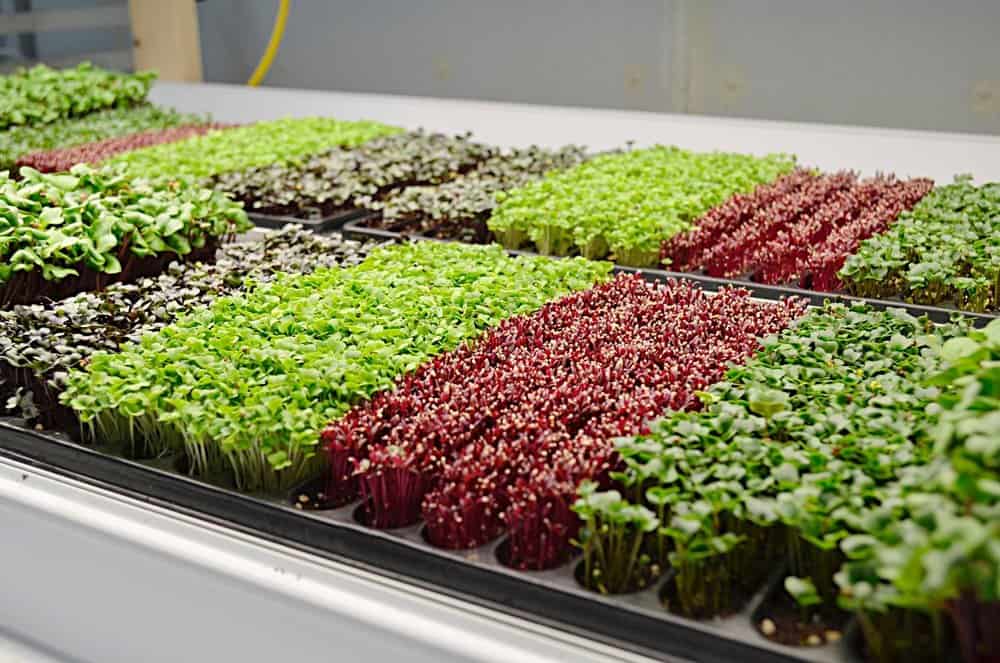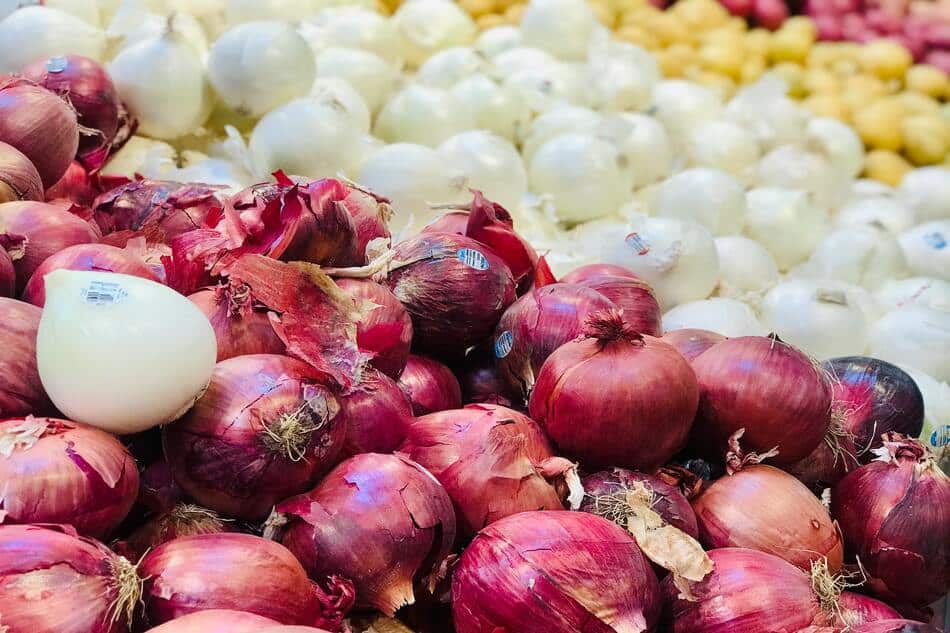Microgreens are popular among health-conscious eaters, but are they really any healthier than vegetables? Let’s take a closer look at the science. And, one of the questions that most get asked is are microgreens healthier than vegetables.

Microgreens are typically harvested just seven to fourteen days after germination when the plants are still young and their leaves are small. This means that they are packed with nutrients, including vitamins, minerals, and antioxidants. In fact, one study found that red cabbage microgreens had nearly four times as much vitamin C as mature red cabbage. Other research has shown that microgreens may also have higher levels of certain phytochemicals, which are thought to promote good health.
So, while there is no definitive answer, there is some evidence that suggests that microgreens may indeed be healthier than mature vegetables. But, in this article, I will talk more about are microgreens healthier than vegetables and answer a couple of other questions as well.
Are Microgreens Healthier Than Vegetables
Microgreens are not just a passing food trend – they are here to stay. Packed with nutrients, microgreens are considered a superfood by many dietitians and nutritionists. But are they really healthier than vegetables.
This question is debatable, but worth understanding.

The jury is still out on this one, but there are some compelling arguments in favor of microgreens. For one thing, microgreens are harvested at the peak of their nutritional value. This is in contrast to many vegetables, which are often picked before they are fully ripened. In addition, microgreens are typically grown in rich, soil – meaning that they absorb more nutrients from the ground than larger plants. Finally, microgreens are usually eaten raw – and it is generally accepted that raw fruits and vegetables are more nutritious than cooked ones.
So, while there is no definitive answer to the question of whether microgreens are healthier than vegetables, there is certainly evidence to suggest that they pack a powerful nutritional punch. Whether you choose to incorporate microgreens into your diet is ultimately a personal decision – but there is no doubt that these tiny greens pack a big health punch.
What Makes Microgreens Healthy?
Microgreens are nutrient-dense greens that are harvested when they are young, tender, and packed with flavor. Unlike their mature counterparts, microgreens are 310% more nutritious. They are also an excellent source of antioxidants and phytochemicals, which have been linked to improved health and reduced risk of chronic disease.
So, are microgreens healthier than vegetables? First, microgreens are grown in nutrient-rich soil. Second, they are harvested at the peak of nutrition. Third, they are packed with vitamins, minerals, and phytochemicals. So, if you’re looking for nutrient-dense food that can help you improve your health, look no further than microgreens.
What Makes Microgreens Healthy?
Detailed Discussion
Microgreens are a type of vegetable that are younger and smaller than baby greens but are more mature than sprouts. They are usually harvested 10-14 days after planting. Microgreens are high in vitamins, minerals, and antioxidants, and are also a good source of fiber. They have a more concentrated flavor than mature greens and can be used as a garnish or added to salads, soups, and sandwiches.
Microgreens are often touted as being more nutritious than mature greens, but there is limited research to support this claim. One study found that red cabbage microgreens had higher levels of vitamins C and E than mature red cabbage, while another study found that microgreens had higher levels of beta-carotene than their mature counterparts. However, it is essential to note that these studies were small and further research is needed to confirm these findings. Nevertheless, microgreens are a healthy addition to your diet and can be enjoyed in many different ways.
Now that you know are microgreens healthier than vegetables, let’s talk about another aspect of this discussion, shall I?
Should You Substitute Microgreens With Vegetables?
There is no simple answer to whether microgreens are healthier than vegetables. While microgreens are often touted as being more nutritious than their full-grown counterparts, there is limited scientific evidence to support this claim.
However, that doesn’t mean that microgreens aren’t worth eating. These tiny greens are packed with flavor and can add a pop of color to any dish. They are also relatively easy to grow, making them a great option for those who want to enjoy fresh produce but don’t have the time or space for a traditional garden. In the end, whether or not you choose to substitute microgreens for vegetables is a personal decision.
If you are looking for an extra nutritional boost, then microgreens may be worth a try. But if you are simply looking for good-tasting and healthy food, then there is no need to overhaul your diet – vegetables will do just fine.
What Micorgreens Should You Eat?
Microgreens are nutrient-packed greens that are grown from the seeds of vegetables and herbs. They are typically harvested when they are 1-3 inches tall and can be used to add flavor, color, and texture to salads, sandwiches, and other dishes.
While microgreens are often lauded for their flavor and visual appeal, they are also believed to be more nutritious than mature greens. Studies have shown that microgreens contain higher levels of antioxidants, vitamins, and minerals than their mature counterparts. This makes them an excellent addition to any diet. So, what microgreens should you eat? Some of the most popular options include broccoli, kale, radish, and spinach.
However, there are many other varieties available, so feel free to experiment until you find your favorites.
Conclusion
In conclusion, are microgreens healthier than vegetables?
Microgreens are more nutrient-dense than their mature counterparts and contain higher levels of vitamins, minerals, and antioxidants. They are also lower in calories and fat. However, they are not a substitute for a balanced diet that includes a variety of fruits, vegetables, whole grains, and proteins. When eaten in moderation as part of a healthy diet, microgreens can provide a nutritional boost that your body may require for proper functioning.
